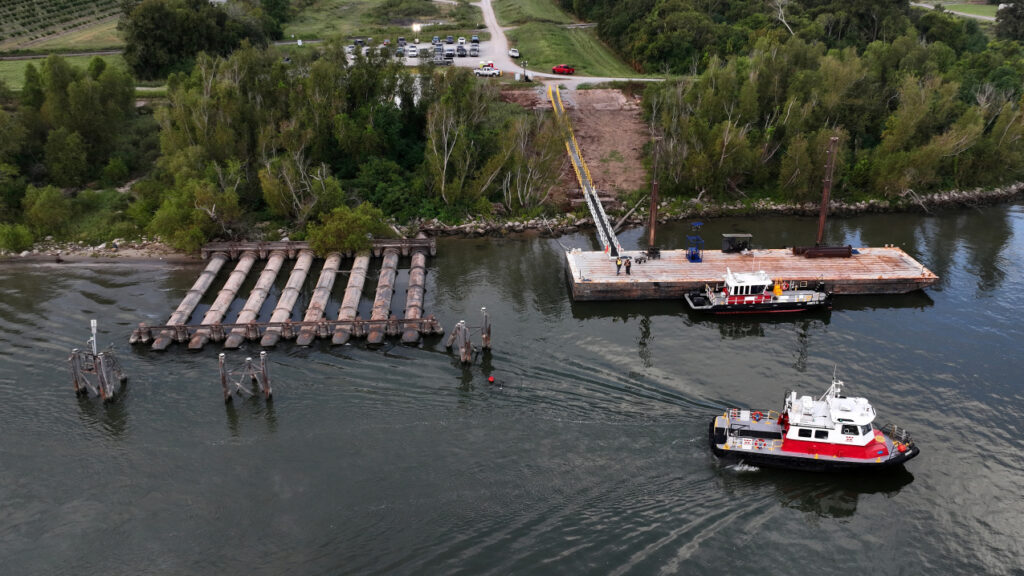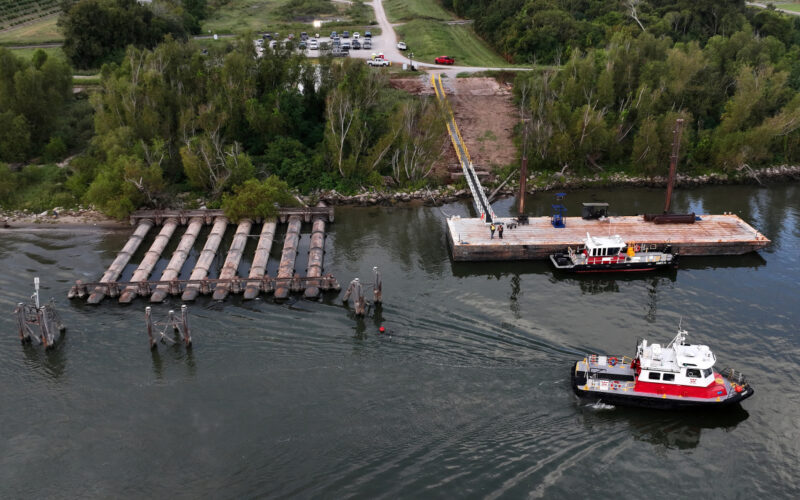(WASHINGTON) — A relatively warm October and expanding drought conditions across the Lower Mississippi Valley helped drop water levels to historic lows along parts of the Mississippi River last month, according to the National Oceanic and Atmospheric Administration (NOAA).
The U.S. also confirmed another billion-dollar disaster in October, bringing the total to a record 25 disasters in the first 10 months — the largest number of disasters for any year since NOAA has kept track of these types of events.

Warm temperatures and lack of rainfall resulted in the expansion of drought coverage and intensity across parts of the Mississippi Valley, leading to record-low water levels along parts of the Mississippi River for the second year in a row. The low water levels caused barges and ships to run aground during one of the busiest times of the year to ship grain, and created saltwater intrusion concerns in southern Louisiana.
In a related development, low water levels on the Panama Canal have forced some ships onto another route, said Amrit Singh, a lead analyst at the London Stock Exchange Group (LSEG).
“Houston-bound LPG tankers are diverting from the Panama Canal due to increased waiting times in an unfortunate turn of events for the drought-stricken waterway,” Singh said Thursday. “According to LSEG Shipping Research, two LPG tankers are diverting, indicating Houston. A diversion, via the Strait of Magellan or Cape Horn, adds about an extra 9,500 miles or 25 days more to a voyage compared to canal transit.
“Six LPG tankers remain at Balboa Anchorage and waiting times are about seven days on average. Transit slots continue to be auctioned to the highest bidder, with typical $300,000 to $400,000 prices ballooning to a record $4 million this week,” he added. “These diversions will inevitably drive up shipping costs as well as (disrupt the) supply chain. The associated increase in emissions is also problematic at a time when decarbonization is high on the agenda.”

